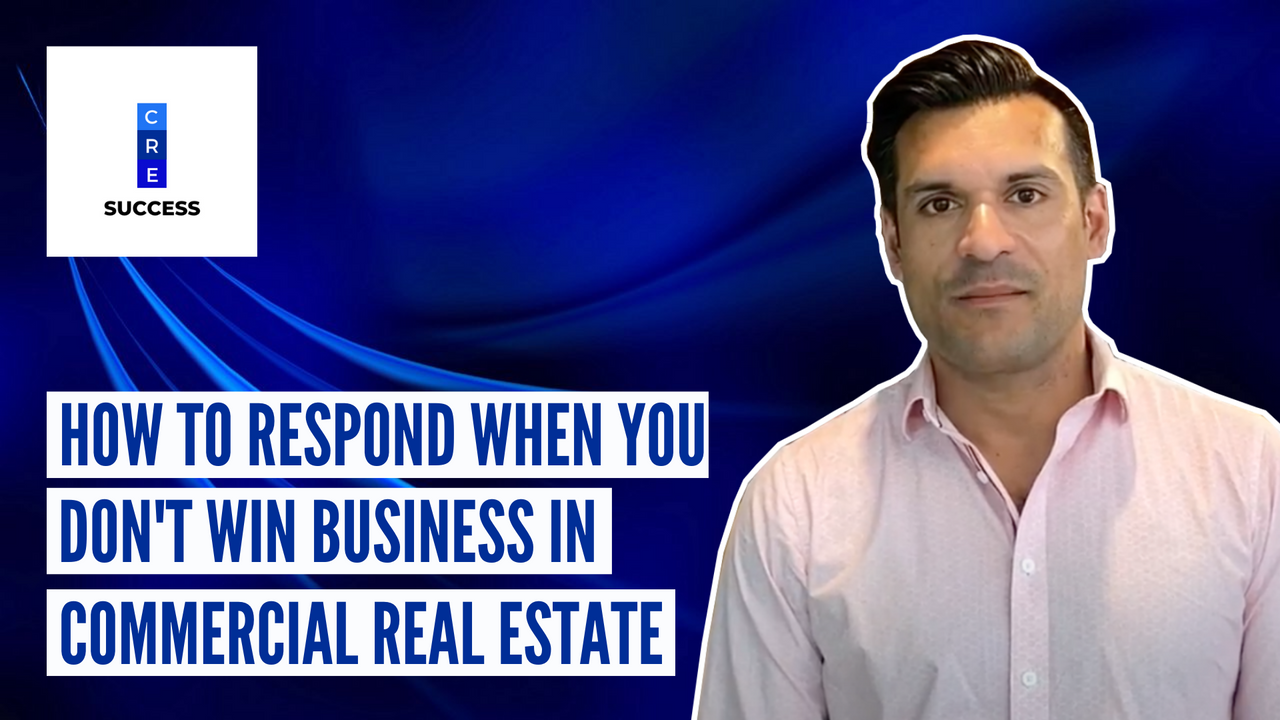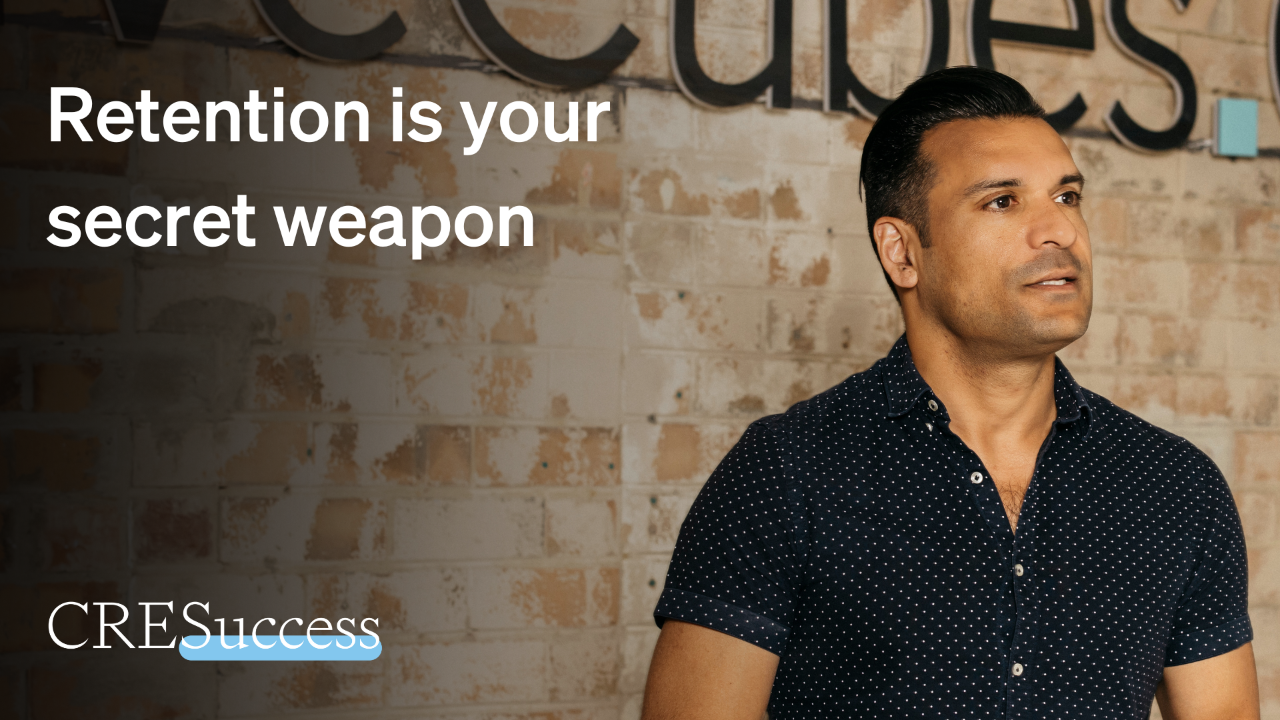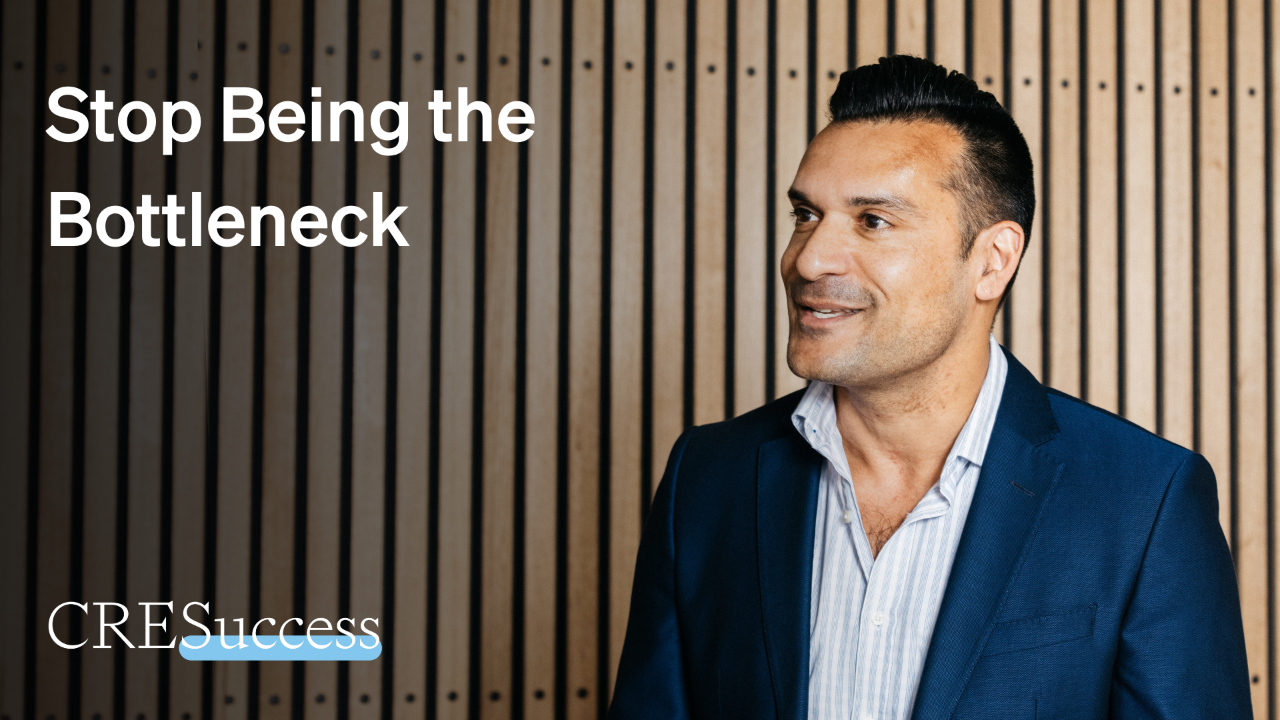How to respond when you don't win business in commercial real estate
Dec 02, 2021
What should you do when you get a call after a pitch and the prospect says, "I'm sorry, but we've decided to go with a competitor"?
Sometimes, when confronted with this news, we're inclined to tell ourselves: "You can't win them all”, and just move on to the next thing.
And in some ways, that’s true.
You can't win them all.
And emotionally, I think it is good to move on.
The market is big with plenty of opportunities.
If you're prospecting on a consistent, persistent, and proactive basis, then you know that there are plenty more opportunities around the corner.
That being said, when you don’t win work, there is also an opportunity just to stop and reflect on what didn’t go to plan.
We can diagnose our own contribution to the result, address some things with our team, and ensure we debrief with the prospect.
Episode 64 of CRE Success: The Podcast is all about taking the opportunity to learn some lessons from the loss.
Because it's not a complete loss if we take a lesson from it!
Episode transcript:
If you've ever wanted to know what you should do next, when you get that crushing news, that you didn't win the deal that you were hoping to win, when you hear back after the bid after the pitch that you weren't successful, don't go anywhere, because that's what we're talking about today.
Hello there and welcome to episode 64 of the show. My name is Darren Krakowiak, and I equip commercial real estate professionals with proven client attraction and retention systems, so they can save time earn more, and be top performers in their market.
Really pleased to have your company once again. Today's show is brought to you by Re-Leased. In 2020 Re-Leased launched CREDIA to provide market insights based on data from tens of thousands of commercial properties globally, to help their customers better manage their businesses.
I'm about to launch into today's topic. But before I do, I have to acknowledge that today's topic is the result of a question from a member of the audience.
If you have an idea for an episode, if there's a burning question you have or if you feel that there's a topic that would be worthwhile to be addressed on this podcast to help other people in commercial real estate, go to cresuccess.co/podcast
So, to Rod, thank you so much for giving me the idea for today's episode.
And on that page, you'll see an orange widget with a microphone.
You can literally record your question, and I will get to hear it and address it on the show. Pretty easy.
Also on that page, you can email us as well. And that's the option that Ron took. So go to cresuccess.co/podcast
I make this content for you. So, the more that you can help me understand what it is that you're looking for, and what would be helpful to you, the better and more relevant the content will be.
So, the topic that Rod had for me as a suggestion was how do we deal with when we don't win business? What do we do when we get the call, and the prospect says, "I'm sorry, but we've decided to go with a competitor."
Well, I know that sometimes when we get this news, we're inclined to just tell ourselves, "You can't win them all. And just move on to the next thing."
And in some ways, it's true that you can't win them all. Certainly, we've got to remember that you can't have a 100% win rate.
If you do, you're either operating a monopoly, or your prices are too low.
And emotionally, I think it is good to move on. We don't want to wallow in sadness when we don't win work.
I know I've taken it too personally when I haven't won work over my commercial real estate career.
But the markets big, there are plenty of opportunities out there.
If you're prospecting on a consistent, persistent and proactive basis, then you know that there are plenty more opportunities coming in.
So, emotionally, yes, we should move on. But professionally, I think there is an opportunity just to stop and to reflect and to do a few things.
Some things with ourselves, some things with our team, and also obviously, some things to address with the prospect.
Because there's an opportunity to learn some lessons from the loss. So, it's not a complete loss if we take a lesson from it.
So firstly, in terms of ourselves, I think there's an opportunity to take responsibility for the result.
We don't want to blame the prospect and say that they favored somebody else unfairly. We don't want to blame competitors and say, "This company, we know they always discount heavily. And that makes it impossible for us to compete."
We don't want to blame the market and say, "The markets just too saturated with these types of service providers right now."
We don't want to blame our colleagues and say that they didn't answer a certain question perfectly during the pitch, therefore, that contributed to the loss.
We've got an opportunity to just look at ourselves and ask if we did enough to win it.
And the answer is that we didn't, right? Because if we did enough, we would have won the work.
Now maybe you did everything that you can and it was beyond your control.
But I think it's worth really looking carefully and asking, Did I do everything that I could?
Did I give the best that I had to give in order to win this opportunity?
Secondly, I think we want to look at the team and not in an accusatory way or to appraise their role that can come at an appropriate time if something really unfortunate did happen during the process.
But the thing to do I think, in the initial when we get the news that we didn't win the work is just to thank everyone else who was involved in the project.
So that means thinking team members who contributed any work that helped us prepare the bid.
That means thinking admin who helped us put together the presentation, who put this put together the proposal, that means thanking our boss, if they supported us, our team members, etc.
So, thanking people, letting them know that you appreciate their input, and that makes them feel valued.
And even though we didn't win, we appreciate what they did.
Now, third, let's talk about how we deal with the prospect.
Because there are lots of things that we can learn from the prospect, particularly in this moment when they are delivering us bad news. And maybe they feel a little bit bad about delivering it.
Not always, so they feel bad, but sometimes they do. And that's an opportunity for us to learn if you think.
So, the first thing to do is just to thank them for the opportunity to participate.
They didn't have to invite us. They did. They gave us a shot. We didn't do enough; we want to thank them for that opportunity.
We want to wish them well on the project, we want to reiterate any particular points that we offered during our bid as things that can help them achieve a successful outcome.
We're not suggesting that other service providers don't have the capacity to perform.
We're just saying, "Hey, this is what we really noticed that would be important. So, if you need any help with that, let me know or just want to remind you of that point, even though we're not going to be doing the work for you that that could be a real opportunity for you."
And that I think just shows them that even though you didn't win, that you do have a service mindset and that you're looking to help them.
And that's certainly not going to hurt you in any way.
I think we want to ask for feedback as well, right? So when we're asking for feedback, we want to ask for specific feedback, not just generic questions, but stuff that can really help us understand what the rationale was for the decision that they made.
So, we can ask them for the main factors that led to their decision.
Was it price? Was it understanding of the brief? Was it wanting to work with a market leader? Was it the relationship? What is it that contributed to you making the decision that you did whether it what was the successful party able to demonstrate that we weren't? Or what weren't we able to demonstrate that the successful party did?
We can ask them a question, what would make you more likely to appoint us next time?
We can let them know that we do want a future opportunity to work with them.
And that if they're not in a position to offer detailed feedback at that time, maybe we've caught them at a bad time, that we would like to follow up with them to speak to them about that and to ask them, when would be a good time to do that.
Now, I would encourage you to try and do that sooner rather than later, just because it's going to be fresher in their mind sooner rather than later.
So, we're trying to get as much information as we can. So we can take those learnings and make sure that we can have our debrief contain relevant information from the prospect while it's still in their mind, as opposed to just general stuff that's not going to really help us.
I think it's important to be cheerful, to be not bitter, to not be accusatory, just to let them know that you're getting a bit of a diagnosis.
And again, they invited you to participate in a process. You accepted that invitation.
They're entitled to make the decision that they want, whether you agree with it or not.
At the same time, if you feel that you put a lot of work into this bid, if you really feel that something went wrong, not on your side but on their side, a question to ask yourself is, well, was it really an opportunity for us in the first place?
And if it was an opportunity that you pursued, even though that you weren't in a good position to win it, because you didn't have the strong enough relationship to start with or you didn't have the market position, or there were certain criteria that they were looking at which you weren't able to meet, then I think that still comes back to your responsibility.
Because it's your responsibility to qualify opportunities, and to not be in a position to be bidding for work that you don't have any business winning.
So, even if you decide that, "Hey, we put in an amazing bid", it could be that something went wrong in the qualifying process.
The one thing I think we want to get out of when we're in a conversation when someone calls you and they say, "Hey, we're going with someone else."
Instead of making the conversation awkward, just see it as an opportunity to lay the foundation for future opportunities to make it a conversation which probably they weren't looking forward to.
But to be a conversation that goes better than they were expecting. That will really, I think reflects well on you. Will put you in a better position to win future work.
And even though every client is different, the more information that you can get from that prospect about why you didn't win the work will certainly not only help you in the future with that particular client, but it will also help you win other work with other prospects that have a similar buyer persona.
Because a lot of the contributing factors behind the decision for them will be similar with similar prospects that exist in the market.
So, there's a few things that I would look at if I was to receive a call that I didn't want to bid.
Just remain calm, make it a more pleasant call than they were expecting.
But at the same time, try and extract some information, which again, makes the loss at least a lesson for us to learn.
Before we go, I just want to ask you one small favor. If you do enjoy the podcast, we'd love if you can rate and review the podcast.
If you do listen to us in Apple podcasts, you can just go into the podcast and push the five star button and give us a five star review that really helps more people find this content.
So, thank you for that. Thank you for sticking around until the end.
Good luck with those debriefs, I hope that you don't have to do to me are those last difference. I hope that you win more than you lose.
But like I said, we can't win a more so when we don't win them, we want to make sure it's not a complete loss with that lesson.
Thanks for listening. I will speak to you soon.








